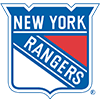When playing fantasy golf in a league with friends, there's always the possibility that you will fall behind early and spend May through September agonizingly longing for your next draft, stewing every time you turn on the Golf Channel, if you can even bring yourself to watch. Nothing worse than your buddies talking trash, and you've got no ammunition to return fire. The beauty of daily fantasy golf, however, is that it gives you a new opportunity to win every single week. We do like our daily fantasy golf, don't we? But we like it more when we do well. Here, then, are some ways to do well.
Readin', Writin', 'Rithmetic
As with any fantasy golf, let's start with doing your homework. Watch golf, read about golf. And learn the rules of DraftKings. As we'll show, there are 5-under rounds and then there are better 5-under rounds.
A quick review of the basics: You pick six golfers who fit into a $50,000 salary cap, and every golfer has a dollar value, generally from $12,000ish to $5,000ish. The golfers get points based on what they do on the course. But in daily fantasy play, it's more like the Modified Stableford Scoring System than regular stroke play.
You get 20 points for a double eagle, 8 for an eagle, 3 for a birdie, .5 for a par, -.5 for a bogey and -1 for double bogey or worse.
So, clearly, a guy who, say, has eight birdies and three bogeys to get
When playing fantasy golf in a league with friends, there's always the possibility that you will fall behind early and spend May through September agonizingly longing for your next draft, stewing every time you turn on the Golf Channel, if you can even bring yourself to watch. Nothing worse than your buddies talking trash, and you've got no ammunition to return fire. The beauty of daily fantasy golf, however, is that it gives you a new opportunity to win every single week. We do like our daily fantasy golf, don't we? But we like it more when we do well. Here, then, are some ways to do well.
Readin', Writin', 'Rithmetic
As with any fantasy golf, let's start with doing your homework. Watch golf, read about golf. And learn the rules of DraftKings. As we'll show, there are 5-under rounds and then there are better 5-under rounds.
A quick review of the basics: You pick six golfers who fit into a $50,000 salary cap, and every golfer has a dollar value, generally from $12,000ish to $5,000ish. The golfers get points based on what they do on the course. But in daily fantasy play, it's more like the Modified Stableford Scoring System than regular stroke play.
You get 20 points for a double eagle, 8 for an eagle, 3 for a birdie, .5 for a par, -.5 for a bogey and -1 for double bogey or worse.
So, clearly, a guy who, say, has eight birdies and three bogeys to get that 5-under score will net you more points (26) than a bogey-free round with 5 birdies (21.5).
There are cash games and GPP (guaranteed prize pools). Cash games generally are played with a small number of guys, maybe just you and one other, while GPP can involve thousands and thousands. The thinking is, be more risky in GPP to give yourself the chance to separate from the masses. In cash, you can be more conservative since you have to better than just one other or a few others. Still, a lot of the tenets of fantasy play apply to both games. We'll get into different lineup constructions for each game shortly.
More Homework
Some things you must consider when picking a lineup:
Course History: Historically, how comfortable is a golfer on the course he's playing that week? Different guys have different skill sets. Does a course allow for distance off the tee, or is accuracy more important? Par-70 with just two par-5s, or par-72 with four? How penal is missing the green? If a lot, find the best scramblers. You can add as much minutiae as you like — some guys do better on the West Coast Swing, some guys putt better on a certain type of grass, some guys like Pete Dye courses. You don't have to be an agronomist (but it wouldn't hurt).
Course modifications: It's rare that a course would change so much from year to year that it no longer would suit the golfer you're thinking of, but sometimes little changes make just enough of a difference. The info on course changes is readily available in the days leading up to the event.
Current Form: If a golfer is playing well heading into a tournament, great. If not, it's risky to assume he'll find his form just when you need him to. Sometimes, course history trumps current form, but in that case, it's got to be a heckuva course history.
Cuts: Many more times than not, golfers missing the cut will wreck your chances. If a guy gets to the weekend, there's always the chance he can get hot. Even if he pars 30 holes with six bogeys, that's a lot of points. If he's a Friday trunk-slam, he probably won't get many weekend points (sarcasm!).
First Cut Is the Deepest
And the second one hurts even more. We're going to stress it again even though it was just mentioned above: If one of your golfers misses the cut, you probably are not going to win. It's not fatal, and you may be able to withstand it in a small pool of players, but if there are thousands in in your GPP game, you're toast. Unless you have five top-10s. And if you do, please pick for us next week.
Lineup Construction
Slightly different for cash vs. GPP but, again, find six guys who will play the weekend. The general thinking is, in cash games, stay away from the highest highs and the lowest lows. Find six golfers in the $7,000-$9,000 range, hope all make the cut and maybe you'll get lucky with one or two challenging on Sunday. There are DraftKings bonus points for top-10 finishes, all the way up to 30 for the winner. In GPP, as mentioned, it's a bit riskier. We like the 2-2-2 format: Find two high-priced guys who you think can win; two steady, mid-level guys; and two longer shots well suited for that particular week. In big GPP games, you almost always have to pick the winner, plus add another one or two top-10s.
Hyper-ventilate
At various points during the season, we see the Next Big Thing, the Flavor of the Month. Bryson DeChambeau, Jon Rahm and Wesley Bryan come to mind. Sure, blueberry daiquiri supreme sounds yummy, though chances are you'll be looking longingly at your friend's mint chocolate chip. Translation? Last year, Bryan got a battlefield promotion for winning a third tournament on the Web.Com Tour. He immediately showed up on DraftKings with some really higher dollar values, much higher than some really good golfers. It's a sucker play. Jordan Spieth doesn't come out of nowhere every year. There's a reason Bryan was in the minor leagues. Don't believe the hype.
Against All Odds
Generally, the weekly odds for a golfer mirror his standing on DraftKings. But sometimes something is out of whack, and a guy has better odds than his dollar value would indicate. Those oddsmakers are pretty smart dudes. Look for the discrepancies and take advantage of them.
Guess Again?
If you read a lot in the days before a tournament, check Twitter, you might be able to get an idea of which golfers will be highly owned. But it's far from an exact science, and guessing ownership is risky, if not foolish. Don't overthink this. Don't fade a guy you think will do well because he will be highly owned. If you think he's the right guy, go with your gut. If you don't go with your gut, don't play fantasy sports.
Read This, Stat!
There's a wonderful little stat that the PGA Tour keeps track of, It's called Birdie or Better Percentage (BBP) . Generally, duh, the best golfers are at the top of this list: DJ, McIlroy, Day and Spieth finished top four in 2015-16. And with birdies and eagles much more valuable than bogeys and doubles are detrimental, this is a great stat to use -- within reason. Ryan Palmer is also among the top guys here. Is he a top golfer? No. Will he kill you in a regular season-long leagues? Been there, done that. But guys like him are more valuable in daily fantasy than daily real life. Robert Garrigus and Andrew Loupe also rank highly in BBP. This is a good stat to consider -- within reason. Palmer didn't miss a lot of cuts. Garrigus missed a half dozen. But Loupe made quite a name for himself last season as a lineup killer. Michael Thompson was 15th in BBP. He missed almost half his cuts. Conversely, Russell Knox was 66th in BBP. As with anything else, moderation. Also look at Birdie to Bogey Ratio (BBR) .
Stats Not Helpful!
There are many other stats to consider, and they often are different depending on the course. But so many experts week after week after week will tell you to consider the same two stats: Strokes Gained: Tee to Green (SGT2G) and Strokes Gained: Putting (SGP) . That information is, largely, worthless. SGT2G is not a stat; it's an aggregation of stats. Telling you to pick a guy with good SGT2G numbers is the same thing as telling you to pick the best golfers. Thanks! There are different components that make up SGT2G and, like we said, not all are in play every week. SGP, at least, limits itself to one thing: putting. But keep in mind, putting is more important and more difficult on some courses than others. A guy can win on some courses without being the best putter (my gosh, Kevin Stadler has a tour win!).
Stats Helpful!
More times than not, a guy with good Greens in Regulation numbers will be a solid pick. He may not a top golfer because he can't putt, but he'll be around for the weekend and occasionally will make one or two. Ball strikers, guys who hit the ball straight. (It's kind of like senior golf. And we hate those old guys who have no distance and score better than us.) We also like the Putting Average stat. As the PGA Tour defines it, Putting Average takes "the average number of putts per green in regulation. By using greens hit in regulation, we are able to eliminate the effects of chipping close and one-putting in the computation."
Final Thoughts
DraftKings: The site compiles how many points a guy averages every week. It becomes more helpful as the season goes on, of course.
Putting: The rest of a golfer's game could be in the toilet, but making putts masks so many mistakes. Sometimes that will help you, sometimes it will hurt you. It'll even out. It's golf. Get over it.
Cash vs. GPP: Play mostly cash. Yes, GPP will score you the big prize, but the chances are so, so slim. Winning is fun. Beatdown after beatdown is not.


































